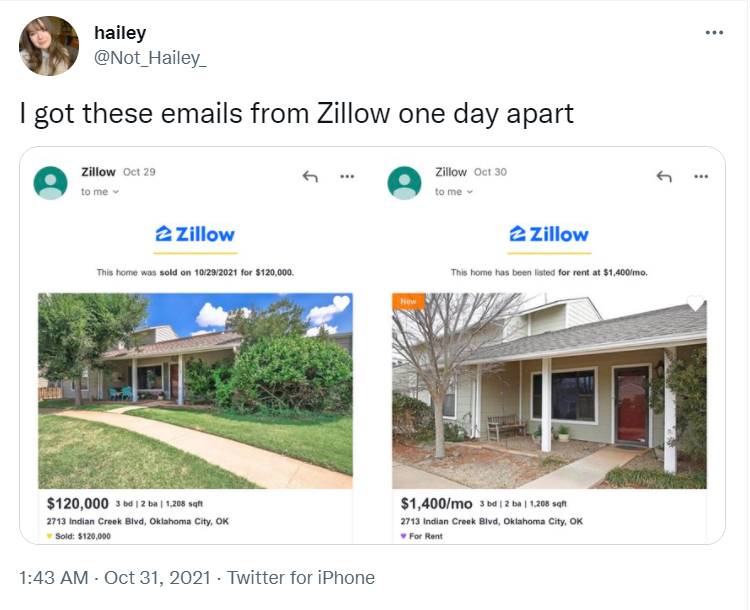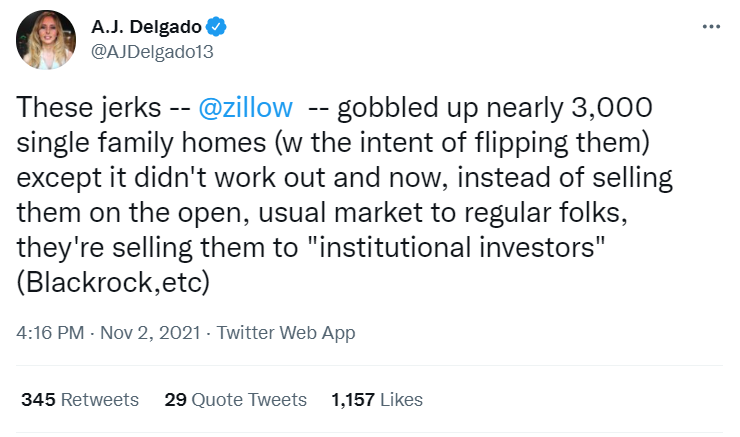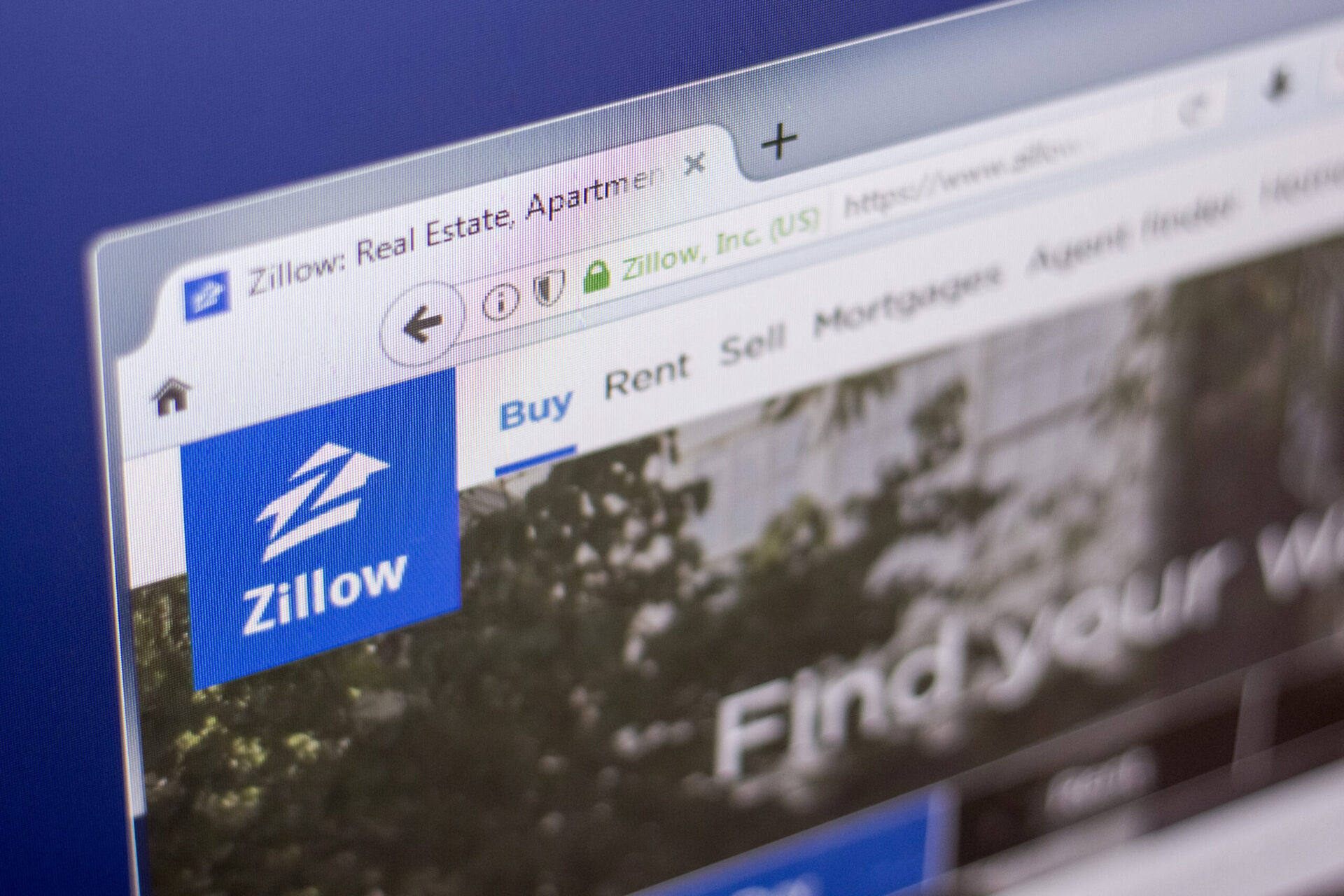Zillow is closing down its iBuying arm, Zillow Offers, citing “unpredictability in forecasting home prices.”
Zillow had previously announced it would not buy more homes in 2021, and instead turn its focus to renovating and selling its backstock of inventory.
“We’re operating within a labor and supply-constrained economy inside a competitive real estate market, especially in the construction, renovation and closing spaces,” Chief Operating Officer Jeremy Wacksman said of the move. “We have not been exempted from these market and capacity issues.”
But Zillow CEO Rich Barton later acknowledged Zillow’s failure was its inability to predict home-price appreciation. Now, two weeks later, it is shuttering altogether. The company dropped the news as part of its third-quarter earnings report. Zillow Offers lost $381 million last quarter, with a total loss of $169 million across the company.
“We’ve determined the unpredictability in forecasting home prices far exceeds what we anticipated,” Barton said in the release. “Continuing to scale Zillow Offers would result in too much earnings and balance-sheet volatility.”
Offers will be closed for “several quarters,” during which time Zillow will lay off 25% of its employees, the company said.
The prevailing view is that Zillow has mismanaged its home-flipping arm. Zillow Offers’ competitor OpenDoor Technology said it is still operating with no delays, even though it purchased 4,689 more homes in Q2 than Zillow and is active in 44 markets, compared to Zillow’s 25.
However, there is evidence that iBuying is risky for any company. In an analysis, Mike DelPrete, a scholar at the University of Colorado Boulder who studies the iBuyer market, said iBuying companies have been running with a “free-for-all, acquire at any cost” homebuying strategy. His research shows profit margins are narrow, with OpenDoor losing $144 million in the last quarter.
Zillow still has inventory to sell, including 9,800 homes across the U.S. and another 8,200 under contract. The company said it expects to lose between 5% and 7% on these homes.
Twitter is awash in posts featuring Zillow’s attempts at moving these properties. One user tweeted, “I got these emails from Zillow one day apart,” with photos of Zillow marketing emails advertising the same house with drastically different filters.

Another theme is the idea that Zillow bought up homes that it will now sell to bad actors, in line with theories that companies like Blackrock and other institutional investors are purposefully manipulating the housing market.

